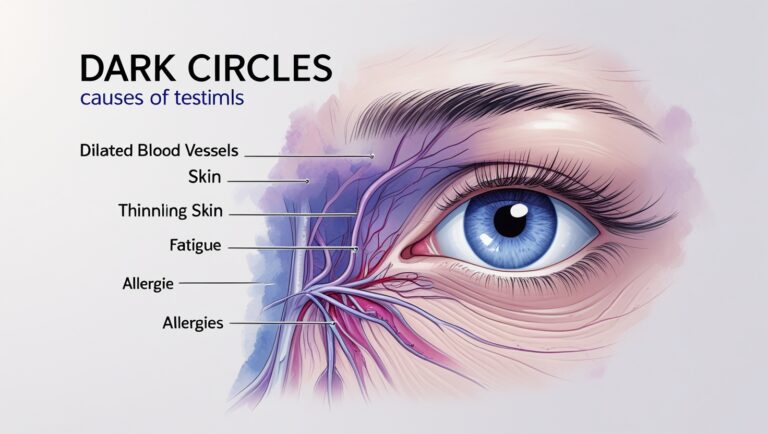Why Hair Oiling Still Matters in 2025
Oiling your hair is more than an age-old ritual—it’s a proven method to deeply nourish your scalp, restore hydration, reduce hair fall, and promote growth. But one question keeps popping up:
“How often should I oil my hair?”
The answer isn’t one-size-fits-all. It depends on your scalp type, hair texture, environment, and even the season. This in-depth guide breaks it all down, helping you create the perfect oiling schedule for stronger, healthier hair—naturally.
Understanding the Science Behind Hair and Scalp Oiling
Hair oiling, rooted in Ayurvedic tradition, helps maintain scalp microbiome balance and protects hair from external aggressors like:
-
Heat styling
-
UV exposure
-
Pollution
-
Product buildup
Key Benefits of Hair Oiling:
-
Prevents breakage and split ends
-
Reduces dandruff and flakiness
-
Strengthens hair follicles
-
Minimizes hygral fatigue (excessive swelling from water absorption)
-
Encourages blood circulation in the scalp
When done correctly and consistently, oiling can be a powerful tool for hair revival.
Too Much of a Good Thing: Can You Oil Your Hair Too Often?
Yes. Over-oiling can lead to:
-
Product and sebum buildup
-
Scalp irritation or clogged pores
-
Greasy texture and dullness
-
Difficulty in washing out the oil completely
That’s why finding the right frequency is critical for long-term results.
How Often Should You Oil Your Hair?
It Depends on These Factors:
| Hair Type | Scalp Condition | Recommended Frequency |
|---|---|---|
| Dry & Curly | Dry, flaky scalp | 2–3 times a week |
| Oily & Fine | Greasy scalp | Every 10–14 days |
| Normal | Balanced scalp | Once a week |
| Damaged or Chemically Treated | Sensitive or inflamed | Once a week with light oil |
Pro Tip:
Always start small and observe how your scalp reacts. You can gradually increase or decrease the frequency.
Signs Your Hair Needs Oiling
Watch out for these symptoms that signal your scalp is craving hydration:
-
❌ White flakes on scalp and shoulders
-
❌ Dull, lifeless hair
-
❌ Increased hair fall
-
❌ Itchy or inflamed scalp
-
❌ Flyaways and split ends
If you’re using anti-dandruff shampoos with little relief, your scalp might actually be dry, not just dandruff-prone.
Scalp Oiling vs. Hair Oiling: Know the Difference
| Scalp Oiling | Hair Oiling |
|---|---|
| Focuses on nourishing hair roots and skin | Focuses on coating hair strands |
| Improves blood flow and reduces hair fall | Repairs damage and adds shine |
| Usually applied directly to the scalp | Usually applied from mid-length to ends |
| Ideal before shampoo | Can be used post-wash as leave-in or mask |
Both methods have their place and work best when combined in a weekly haircare ritual.
Best Oils Based on Your Hair Needs
Choosing the right oil is just as important as how often you use it. Here are the top oils by concern:
1. For Dry Scalp
-
Coconut Oil: Deep conditioning & antimicrobial
-
Sunflower Oil: Moisturizes without clogging pores
-
Jojoba Oil: Mimics natural sebum
-
Moringa Oil: Rich in antioxidants
2. For Hair Growth
-
Castor Oil: Stimulates follicles, thickens hair
-
Rosemary Oil (with carrier oil): Promotes circulation
-
Peppermint Oil: Increases blood flow
3. For Oily Scalps
-
Tea Tree Oil (with carrier): Antibacterial and clarifying
-
Argan Oil: Lightweight, non-greasy hydration
How to Properly Oil Your Scalp (Step-by-Step)
Follow this proven method for maximum absorption and benefits:
-
Choose your oil based on your scalp/hair type.
-
Warm it slightly for better penetration.
-
Use a dropper or fingertips to apply to the scalp section by section.
-
Massage for 3–5 minutes in circular motions (boosts blood flow).
-
Spread remaining oil through lengths of your hair.
-
Cover with a warm towel or shower cap.
-
Let it sit for 45 minutes to 1 hour.
-
Rinse with sulfate-free shampoo.
-
Use a conditioner or coconut oil as a deep treatment.
When Is the Best Time to Oil Your Hair?
Weekly Schedule Suggestions:
-
Before Bed (Night Oil Treatment): Best for deep nourishment
-
Pre-Wash Oiling: Protects from shampoo dryness
-
Avoid After Wash (unless using light leave-in oil)
Extra Tips for Healthy Hair Oiling Routine
-
✅ Always apply on dry hair for better penetration
-
✅ Use a wide-tooth comb to spread the oil evenly
-
✅ Mix essential oils (like rosemary, tea tree) with carrier oils
-
✅ Avoid harsh shampoos—go sulfate- and paraben-free
-
✅ Add a monthly hair mask to your routine
-
✅ Keep your pillowcases clean (especially after overnight oiling)
Hair Oil Mistakes to Avoid
❌ Applying oil to already greasy hair
❌ Using too much oil that requires multiple washes
❌ Not massaging it in—scalp stimulation is key
❌ Leaving oil for days (can clog pores and attract dust)
❌ Using synthetic or low-quality oils
Seasonal Hair Oiling Guide
-
Summer: Use lighter oils (jojoba, sunflower); 1x/week
-
Winter: Deep nourishing oils (coconut, almond); 2–3x/week
-
Monsoon: Focus on scalp hygiene; avoid over-oiling
Natural Remedies: DIY Oil Blends
You can create your own blends using these essential oils and carrier oils:
DIY Hair Growth Blend
-
2 tbsp Coconut Oil
-
1 tbsp Castor Oil
-
5 drops Rosemary Essential Oil
-
5 drops Peppermint Oil
Mix and store in a dark glass bottle. Use once a week.
Final Thoughts: Listen to Your Hair
Oiling is not a “one-size-fits-all” routine. Your hair will tell you what it needs. Start by oiling once a week and adjust based on how your hair and scalp respond.
-
If your scalp feels dry → Increase frequency
-
If hair looks limp or greasy → Reduce oil quantity or frequency
-
If you see flakes or itching → Try scalp oil with anti-inflammatory properties (like tea tree or peppermint)
Summary Checklist: Quick Answers to Common Questions
Q: How often should I oil my hair?
A: 1–2 times a week for dry hair; once every 10–14 days for oily scalp.
Q: Can I leave oil in overnight?
A: Yes, if your scalp tolerates it. Wash thoroughly the next morning.
Q: Can oiling regrow hair?
A: It promotes growth and reduces hair fall but results vary based on consistency and underlying causes.
Q: Should I oil clean or dirty hair?
A: Oiling clean (or semi-clean) hair allows better absorption.
Visit for more :- Greakstive
External References & Further Reading:
How Often Should You Oil Your Hair?








![Is Daily Hair Washing Bad for Your Hair? [Expert Guide]](https://greakstive.com/wp-content/uploads/2025/06/1750177120384-300x171.jpg)
